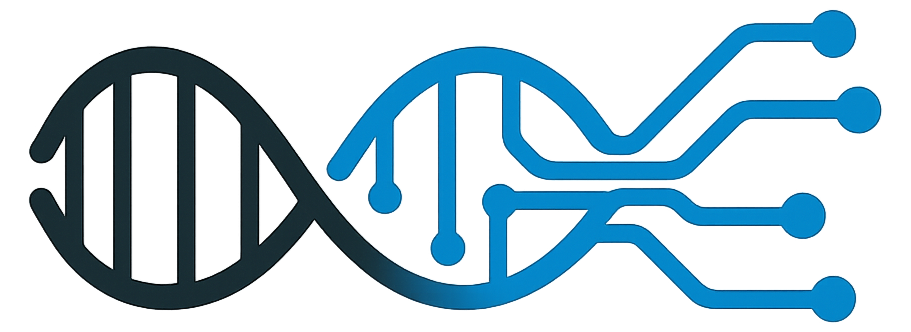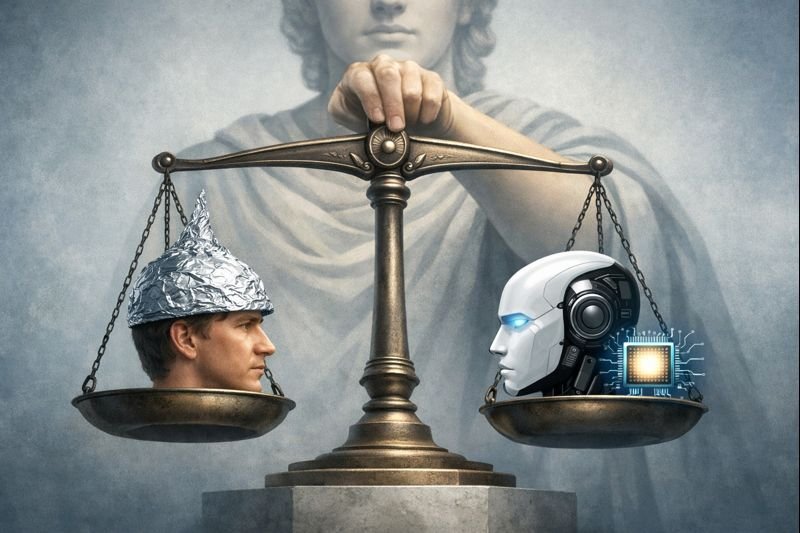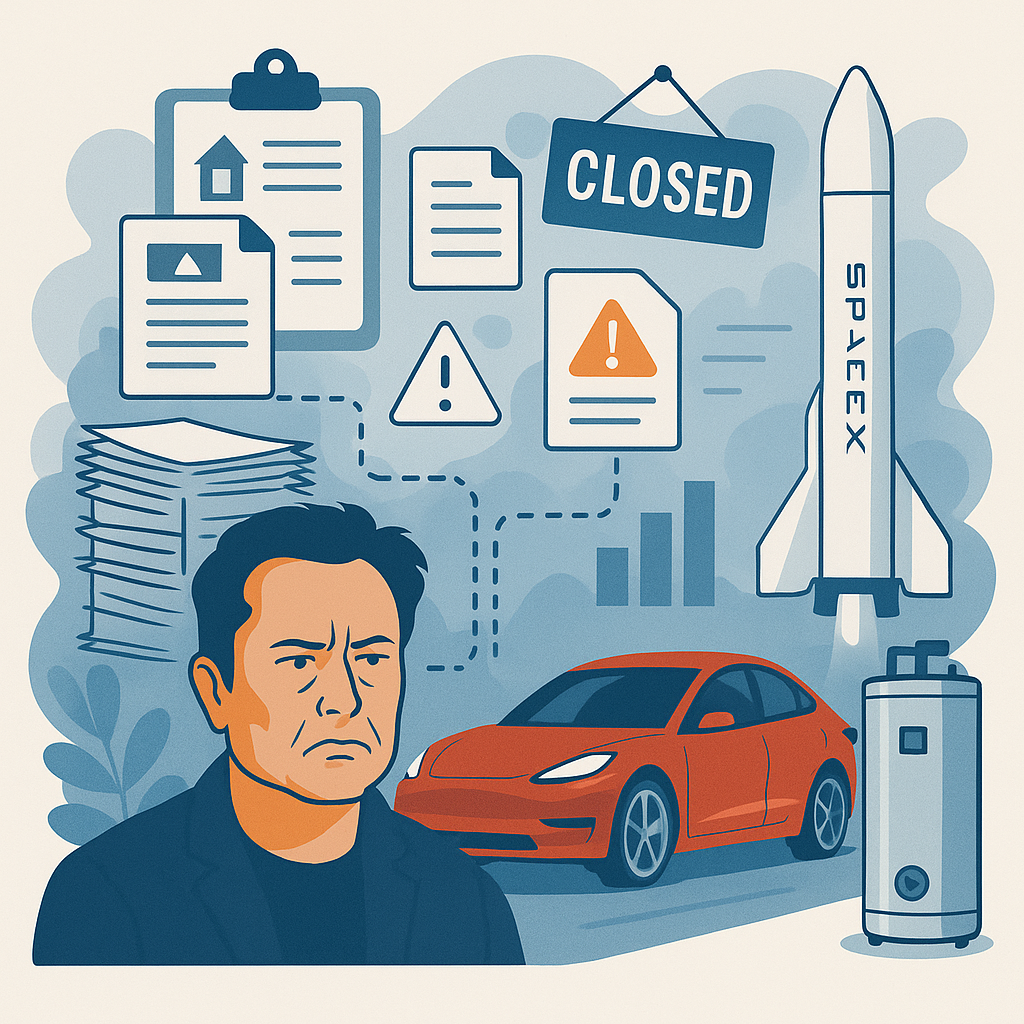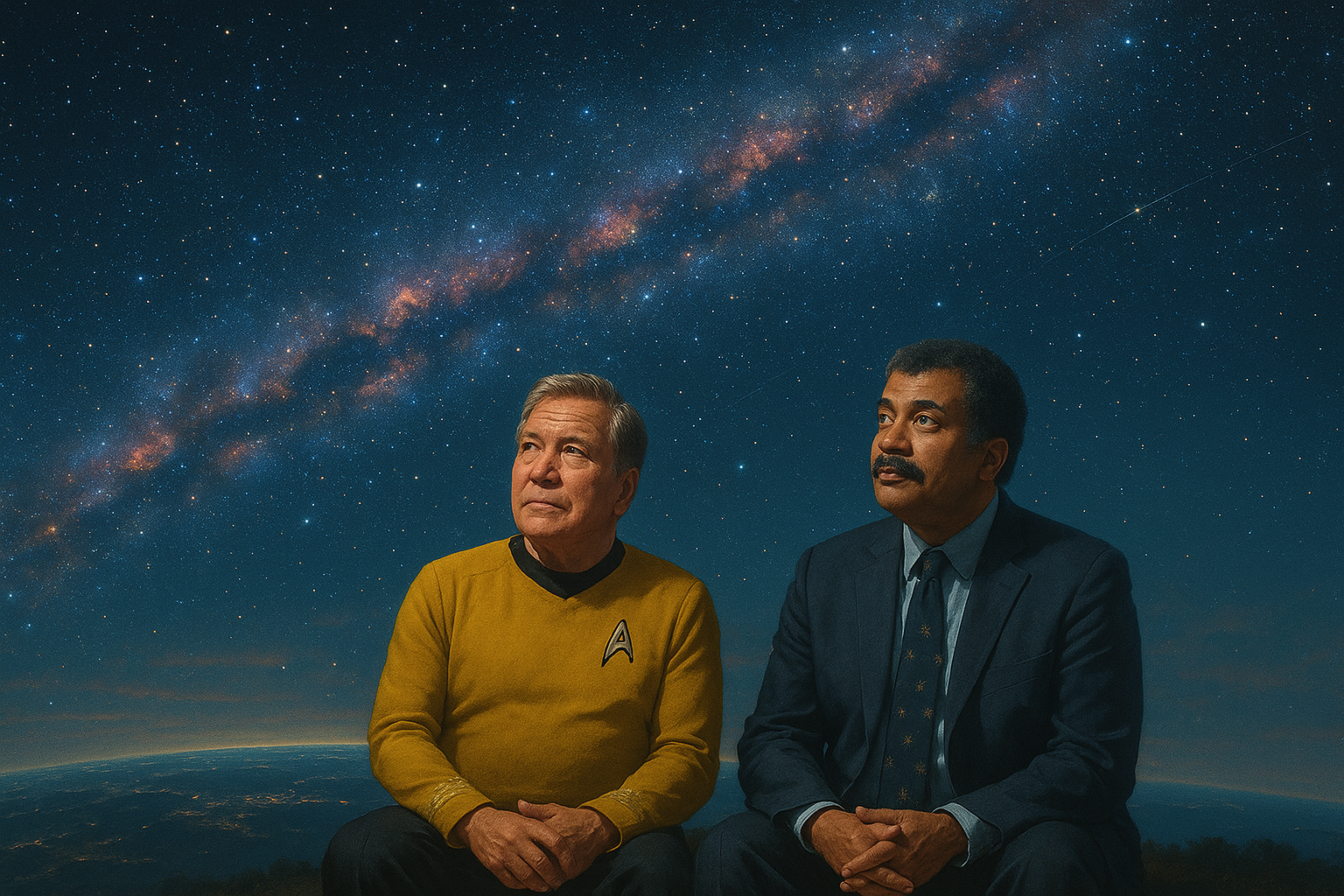🦠Why Movie Villains Keep Saying Humanity Is a Virus (and Why Some Real People Quietly Agree)
Science-fiction villains often claim humanity is a virus, a pest, or a design flaw. This essay explores why that idea keeps appearing in movies, how it echoes real debates about AI and evolution, and what it reveals about our fear of becoming obsolete.
🪖When AI Pulls the Trigger: Or, How I Learned to Stop Worrying and Fear the Machine
What happens when no one pulls the trigger—but people still die? This post explores how AI could enable mass violence without human intervention, from tele-operated robots to autonomous weapons. It’s a sober warning about real tech, weak policies, and the need to act before machines make life-or-death decisions on their own.
📑 Why Elon Musk’s War on Bureaucracy Made Sense After I Lived in California (Even If His Politics Still Don’t)
After years of tripping over California’s bureaucratic maze, just to do something like replace a water heater, I started to understand Elon Musk’s obsession with efficiency. It’s not just about speed. It’s about escaping systems that value paperwork over progress. This post explores how red tape warps ambition, why tech minds flirt with political wrecking balls, and what a smarter, more human-centered bureaucracy could actually look like.
🪅When Captain Kirk Meets the Cosmos: Shatner & Tyson Crash the Universe Party
When a fictional starship captain and a real-life astrophysicist sit down to talk about the universe, you get more than just space trivia—you get philosophy, poetry, and a surprisingly moving take on our tiny place in the cosmos. William Shatner and Neil deGrasse Tyson explore mortality, wonder, and why Pluto just can’t catch a break. Come for the cosmic insights, stay for the playful jabs and existential revelations.
🧬 Genes, Memes, and AIs: A Survival Showdown Billions of Years in the Making
What do genes, memes, and AIs have in common? They're all replicators—entities that copy, mutate, and fight for survival in their own strange ecosystems. In this deep and delightfully nerdy post, we pit biology, culture, and technology against each other in a three-way evolutionary showdown. With penguins, fart jokes, and future AIs writing cat memes, it's natural selection like you've never seen it.
🫰The Chaos Dividend: Why America’s Future Looks Like a Season Finale Until We Fix the Wealth Gap
America feels increasingly unstable: more protests, more polarization, more billionaires launching vanity projects into space. Beneath the noise lies a deeper issue, a wealth gap so wide it is starting to warp the system itself. Now add AI into the mix, an economic rocket ship that could either fund universal stability or accelerate collapse. The question is not whether things get chaotic. It is whether we decide to share AI’s wealth or the chaos.
🥡Lunch in 2040: Where AI Writes the Code, Teaches Your Kid, and Still Can’t Fold a Fitted Sheet
In this funny-yet-thoughtful look ahead to 2040, we explore how AI is reshaping work, companies, and daily life—while still failing to conquer the dark arts of fitted sheet folding. Based on insights from Sam Altman and Vinod Khosla, this post unpacks the future of automation, human value, and why biology remains stubbornly human, even when the robots are doing our taxes.
👹 AI vs. Humanity: The Golden Rule Gets an Upgrade
We like to believe technology will save us, but AI is really just a mirror. If we are thoughtful, it can help us think better. If we are selfish or oblivious, it will happily amplify that too. This post explores how AI could sharpen or dull our attention, inflate our self-centeredness, and maybe even rewrite the Golden Rule for the digital age—with humor, ketchup aisle villains, and a reminder that humanity’s biggest challenge might still be… humanity.
🧭When AI Needs a Compass (and Maybe a Philosopher or Two)
As AI shifts from obedient tool to influential force in our daily lives, philosopher-entrepreneur Brendan McCord argues that we need more than regulation or acceleration—we need a North Star. In this post, Charlie Mahoney explores McCord’s call to design AI around human flourishing, using a compass of autonomy, reason, and decentralization. It’s not about fearing machines or worshipping them—it’s about steering them with values older than code.
🧱 The Path Is Built One Stone at a Time and We’re All Masons Now
The future isn’t a road we’re traveling — it’s a path we’re building as we go, stone by stone. In this moment of explosive AI growth, we’re all masons, laying the groundwork for whoever comes next. Drawing from Sam Altman’s perspective on AI’s rapid evolution, this piece explores how we inherit the trails left by those before us, the choices we face in choosing the next direction, and the responsibility we share in shaping where humanity goes next.
🎸 My Writing Partner is Made of Wires and Code (and That’s Okay)
This post is an open admission that I use AI to help write my blog—but not as a substitute for thinking or creating. I compare my approach to how The Edge from U2 uses echo: as part of the instrument, expanding the sound without replacing the player. From photography to cooking to the looming “supercharged Instagram effect,” I explore how AI can either deepen creativity or turn it into hollow performance. The difference comes down to authorship, authenticity, and the choice to make something real.
👨🚀When the Smartest CEO Isn’t Human: Mo Gawdat’s Wake‑Up Call on AI
We’re sprinting toward a future where the smartest CEO in the room isn’t human. Former Google X exec Mo Gawdat believes the next 15 years will feel like a short-term dystopia—AI magnifying our worst instincts before we learn how to steer it. But if we survive the turbulence, we could enter an age of abundance and creativity unlike anything in history. Here’s what’s at stake, why it matters, and what it means for us.
🫥 The Paradox of Invisible Technology: Why Wanting Less Tech Gives Us More of It
We say we want less technology in our lives, but what we really want is technology we don’t notice. Lights that turn on by themselves, thermostats that predict our comfort—magic that fades into the background. The catch is that the more invisible tech becomes, the more dependent we are on it, and we don’t realize how much we’ve outsourced until the magic suddenly stops working.
📝AI, Humanity, and the Existential Performance Review
As AI surpasses human intelligence in tasks from art to analysis, we face a profound question: if machines can do everything, what still makes us human? A humorous yet philosophical dive into meaning, curiosity, and the return of natural philosophy.
🚲🚀From Bicycles to Brain Rockets: Steve Jobs, AI, and the Supercharged Mind
What if Steve Jobs’ “bicycle for the mind” just got upgraded with rocket boosters? This post explores how AI is reshaping the way we think—moving us from mental muscle power to maglev trains and cognitive autopilot. From computers to cognitive co-pilots, we trace the wild evolution of thought tools and ask: with all this speed, are we still steering?
🔮"What’s the Question Again?" – Why Asking the Right Thing Might Be the Only Thing That Matters Now
In an age where AI can answer just about anything, the real power lies in asking the right questions. From Douglas Adams’ “42” to Elon Musk’s musings on inquiry, it’s clear: answers are cheap, but direction is everything. Prompting isn’t about manipulating machines—it’s about clarifying thought. Socrates knew this, and now, in a world of digital Deep Thoughts, so must we. Because the secret to navigating the promptocalypse isn’t knowing more. It’s asking better.
🧘How Humanists Can Make Peace with Our New AI Overlords (While Still Being Deeply Human About It)
As AI systems take over more domains once reserved for human ingenuity, what’s left for the poets, philosophers, and ethically tortured intellectuals? Plenty, it turns out. This post explores how humanists can remain vital—by being the conscience, the storytellers, and the meaning-makers in a world increasingly run by algorithms.
🤤“I, Student”: Why Outsourcing Your Homework to AI Is Like Hiring a Robot to Do Your Push-Ups
AI tools like ChatGPT promise easy wins for overwhelmed students, but the real cost isn’t just academic—it’s cognitive and emotional. This post explores why the messy, uncomfortable parts of learning are where growth actually happens, and how outsourcing your thinking might leave you with A+ work and D- self-trust. Spoiler: brain push-ups are non-transferable. 💪
🧠Designing Minds: Education for an AI-Augmented Future
As artificial general intelligence (AGI) transforms the landscape of work, creativity, and education, we face a pivotal question: what makes us irreplaceably human? This post explores how educators can embrace emerging technologies like AI and XR not just to keep up—but to lead. From polymathic learning to emotionally resonant classrooms, we dive into the practical, philosophical, and profoundly human future of education in an AI-augmented world.
⚡️Watt’s Next? Why the Future of AI Might Depend on Your Toaster
What do GDP, life expectancy, and your toaster have in common? Energy. This post explores why Sam Altman thinks abundant energy is the key to unlocking AI’s full potential—and why that might be great news for the future of humanity (and maybe your circuit breaker).





















